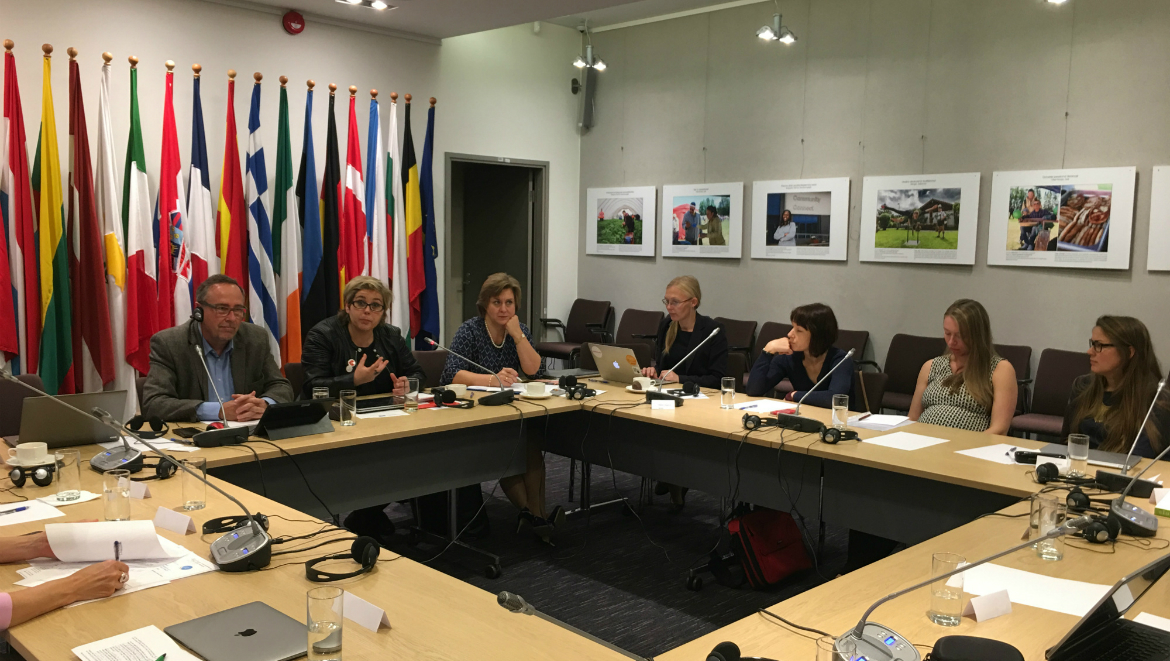From 25 to 26 September 2017, the Conference of INGOs held a fact-finding visit in Tallinn. Like all other visits, it focused on NGO participation in the decision-making process. Because their impact on civil participation in decision-making should not be ignored, digital tools and the digital environment which is part of the Estonian democratic governance were of great interest to the Conference of INGOs. In Estonia, NGOs, which are seen as strategic partners by government representatives, intelligently associate their watchdog and alert duties with the contributions they make to the concrete implementation of public policies.
The organised civil society sector is dynamic, resilient and professional. The umbrella NGOs rely on the work of their members and reinforce their skills and expertise. Professionalisation, being a priority, should not overshadow the expertise coming from the experience of individuals faced with current democratic challenges, one of which seems to be the digital divide still present among certain social groups.
Public authorities and NGOs confirmed that although they have achieved a high level of dialogue, they observe some stagnation. The will is to see the core principles included in the Estonian Civil Society Development Concept evolve and to reflect on the effectiveness of collaborative and participatory practices in the political process, such as they are promoted by the 3rd Estonian Action Plan (2016-2018) within the framework of the Open Government Partnership.
The Conference of INGOs warmly thanks the Network of Estonian Non-profit Organisations (NENO), its partner for the organisation of the visit, the representatives of the Estonian Government for the open and rich exchanges of views and the Permanent Representation of Estonia to the Council of Europe for its support and guidance.



